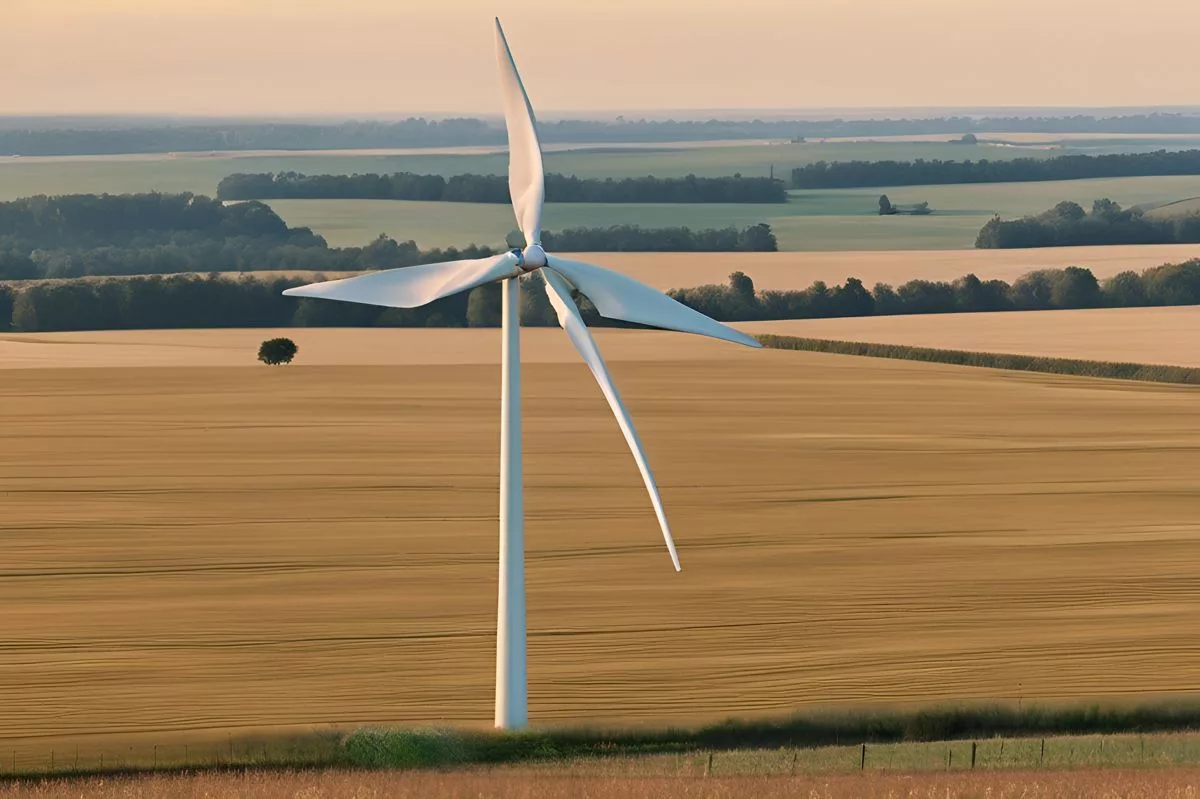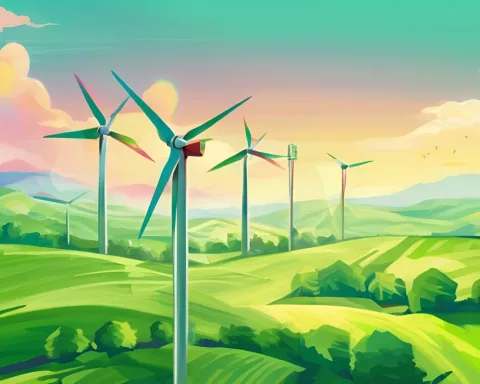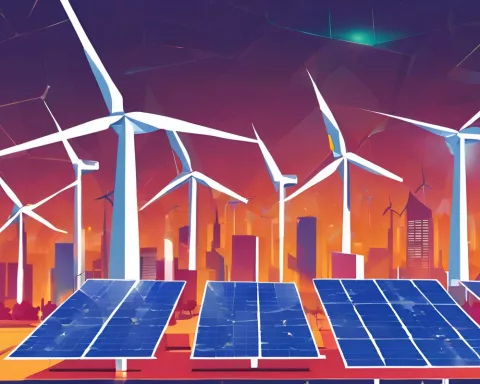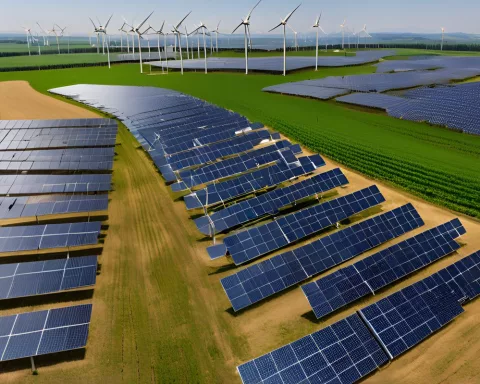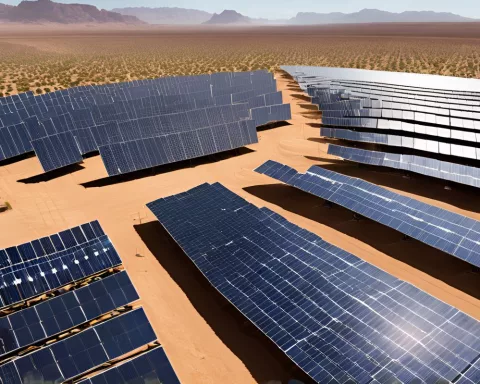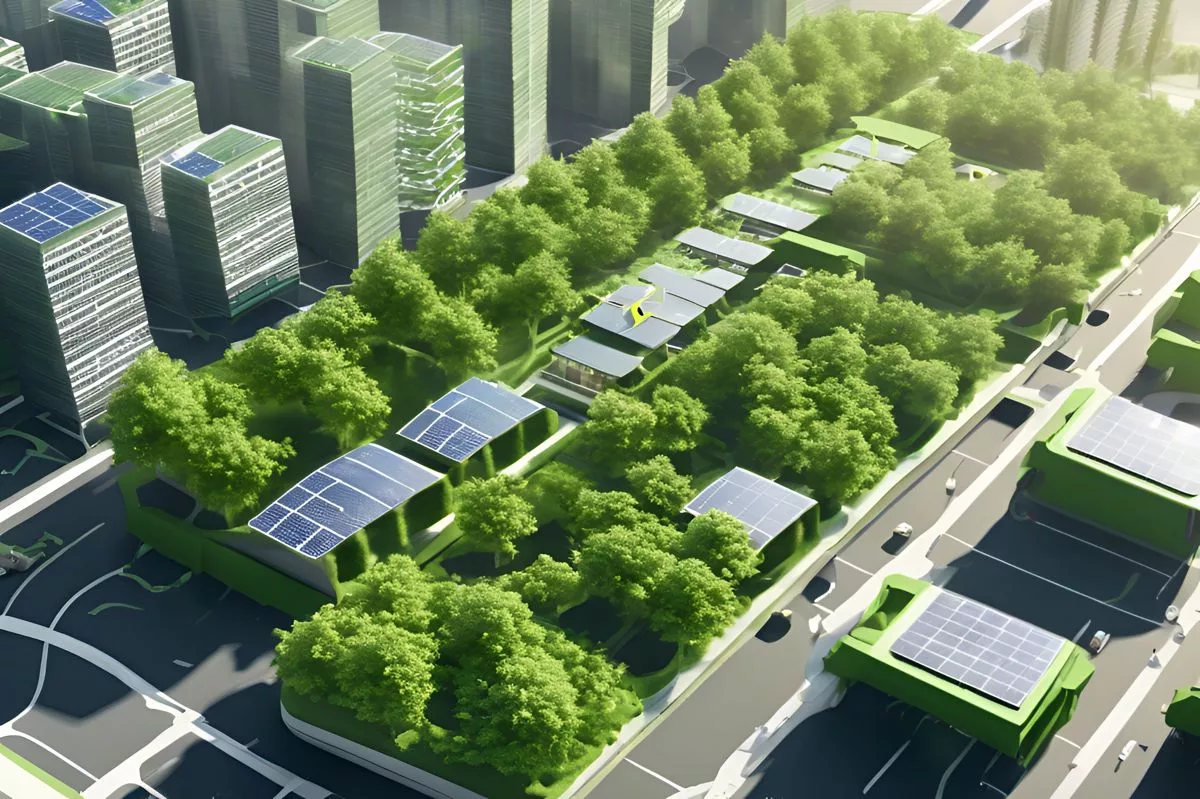Premier Mxolisi Dukwana of South Africa’s Free State Province outlined an ambitious economic plan focusing on innovation, strategic investment in infrastructure, and job creation. He emphasized the province’s unique advantages in renewable energy, mining, and agriculture, and its potential to shape the future economy. Dukwana committed to ethical governance and a united front towards prosperity, calling for investments in people and technologies to position the Free State among the economies of the future.
Premier Mxolisi Dukwana outlines an ambitious economic future for South Africa’s Free State Province, emphasizing the importance of fostering innovation, strategic investment in infrastructure, and job creation. The province’s unique geographic advantage and potential in renewable energy, mining, and agriculture position it as a key player in shaping the future economy. Dukwana’s commitment to ethical governance and a united front towards prosperity reflects his dedication to equitable growth.
Charting New Courses for Economic Stability
In a recent keynote speech at the Free State Investment Conference, Premier Mxolisi Dukwana ambitiously outlined the economic future for South Africa. The Premier shared a bold vision for Free State Province, encapsulating an enterprising spirit, innovative ideas, employment growth, and the pursuit of common wealth. His plans are set to navigate the region towards economic stability and diversification.
Despite the current economic landscape, showing a decrease in South Africa’s Gross Domestic Product by 1.3% in Q4, Dukwana radiated positivity. The national unemployment rate might have risen slightly by 0.2 percent, yet the Free State Province showed a promising decrease in unemployment by 1.5 percentage points. This highlights the success of combined efforts between the government and the private sector.
The Premier emphasized the province’s commitment towards fostering innovation and enterprise. He highlighted the unique geographic advantage of the Free State, underlining the importance of strategic investment in infrastructure. Dukwana emphasized the need for efficient transport linkages, harmonizing road, rail, and air networks and enhancing rural connectivity.
The Future Energy Hub and Mining Prospects
Dukwana spotlighted energy security as a primary focus in his address, proposing the Free State as the energy nucleus of the future. The province’s high solar radiation index makes it an appealing location for renewable energy ventures, a sector teeming with investment opportunities. The discovery of natural gas deposits notably around Virginia, has the potential to make the Free State a considerable player in national energy security endeavors.
While addressing the expected job losses due to the closure of several gold mines in the Free State, Dukwana assured that new opportunities in various resources would cushion the blow. The possibilities in gold extraction, as well as low-grade coal, diamond, uranium, and salt mining, are promising. Moreover, the discovery of Helium gas within the natural gas deposits strengthens the Free State’s allure as an investment hub, considering its integral role in manufacturing microchips and semiconductors.
The Free State: Shaping Economies of the Future
Dukwana expressed his aspirations for the Free State to become a key player in the digital, green, hydrogen, and circular economies. He encouraged ambitious goals and focused investments in people and technologies. Although these investments may not yield immediate returns, they would undoubtedly position the Free State among the economies of the future.
Agriculture, which contributes 5.1% to the Free State’s Gross Domestic Product, is also identified as a sector ready for growth. The province, already regarded as the country’s food supply hub, produces significant amounts of several essential crops and commodities. A recent agreement to export red meat to Saudi Arabia, lifting a 20-year ban, presents an exciting growth opportunity for this sector.
A Flourishing Industrial Economy and Ethical Governance
Dukwana emphasized the need to industrialize the Free State economy, particularly through manufacturing. He spotlighted the central role of entities such as the Free State Development Corporation and the Maluti-a-Phofung Special Economic Zone in drawing investments. His vision includes converting the Free State into a vibrant construction hub, revamping economic infrastructure to inspire confidence in both domestic and international investors.
However, Dukwana’s address was more than an investment pitch; it was a call to collectively work towards a prosperous future. His commitment to stamping out corruption, upholding an ethical and capable state, and preserving democracy and freedom highlighted his dedication to equitable growth.
Echoing President Cyril Ramaphosa’s sentiments, Dukwana displayed faith in South Africans’ potential to achieve monumental feats together, to register victories, and overcome obstacles as a united front. As he concluded, “We will do better, we will do more, and we will do it faster. Together.” These words not only act as a roadmap for Free State’s economic future but also serve as an inspiring beacon for all South Africans during these challenging times.
1. What is Premier Mxolisi Dukwana’s economic plan for Free State Province in South Africa?
Premier Mxolisi Dukwana’s economic plan for Free State Province in South Africa focuses on fostering innovation, strategic investment in infrastructure, and job creation, positioning the province as a key player in shaping the future economy.
2. What are the unique advantages of Free State Province in South Africa?
Free State Province in South Africa has unique advantages in renewable energy, mining, and agriculture, making it an appealing location for investment opportunities. The province’s high solar radiation index makes it a potential energy nucleus of the future, and it has natural gas deposits that could contribute to the national energy security endeavors.
3. How is Premier Mxolisi Dukwana addressing job losses due to the closure of several gold mines in Free State?
Premier Mxolisi Dukwana assured that new opportunities in various resources would cushion the blow of expected job losses due to the closure of several gold mines in Free State, including possibilities in gold extraction, low-grade coal, diamond, uranium, and salt mining.
4. What sectors are identified as ready for growth in Free State?
Agriculture, which contributes 5.1% to the Free State’s Gross Domestic Product, is identified as a sector ready for growth. Additionally, the province is identified as a potential investment hub in the manufacturing of microchips and semiconductors due to the discovery of Helium gas within natural gas deposits.
5. What is Premier Mxolisi Dukwana’s vision for ethical governance in Free State?
Premier Mxolisi Dukwana is committed to stamping out corruption, upholding an ethical and capable state, and preserving democracy and freedom, highlighting his dedication to equitable growth.
6. How does Premier Mxolisi Dukwana’s economic plan reflect a united front towards prosperity?
Premier Mxolisi Dukwana’s economic plan reflects a united front towards prosperity by encouraging ambitious goals and focused investments in people and technologies, positioning the Free State among the economies of the future. Additionally, his commitment to equitable growth through ethical governance reflects his dedication to working collectively towards a prosperous future for all.

